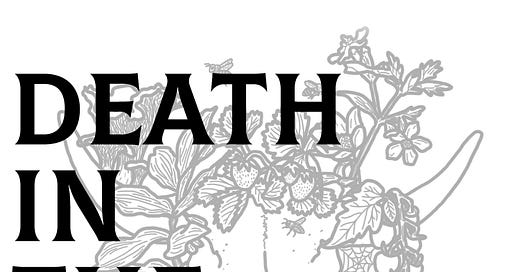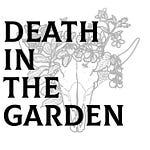On this episode of “Death in The Garden,” Jake and Maren interview carnivore ecologist and conservation writer Dr. Mordecai Ogada. He is the Executive Director of Conservation Solutions Afrika, which aims to transform conservation in Africa to a model that includes humans in relationship to the land and wildlife. Ogada, alongside journalist John Mbaria, wrote the book The Big Conservation Lie in 2017, which details the problems in African conservation that stem from a racialized hero system that favors Western foreigners over Black Africans. These problems have deep taproots in Christian colonization, and continue to infiltrate the psyches of Africans as well as people in the West, perpetuated by narratives that suggest that philanthropy, conservation, and tourism are necessary to “protect” wild animals in Africa. Underlying these assumptions is that wildlife needs to be protected from Black African locals who have lived in equilibrium with this wildlife since humanity began. Meanwhile, white Westerners are encouraged to go on safaris all over Africa and kill big game animals for sport, yet there is no paramilitary outfits that will hunt and kill these foreigners, let alone burn down their villages, and disallow them from accessing their sacred forests as organizations such as WWF (World Wildlife Fund) have done alongside so many other multinational conservation organizations.
A deeply complex issue, we dive into the intersections between conservation and food systems, the racist assumptions underpinning conservation in Africa, the Disney-fied myths that perpetuate problems in Western perception of Africa and its wildlife, the fallacy of tourism and capitalism being necessary to protect wildlife, the removal of the sacred during Christian colonization, how conservation today reinforces the institutions of colonialism, and how the language of crisis maintains these dubious institutions. We also talk about death in the circle of life as it relates to carnivores, and the necessity of allowing natural processes to continue unobstructed. Highlighting the necessity of indigenous interaction with the landscape, Ogada paints a detailed picture of how we might better move forward with conservation in an integrated, context based way, and to not apply global homogenizing rules to complex systems.
Please rate, review, and subscribe if you are enjoying this podcast. Check out our website and Instagram for more information about “Death in The Garden.” Keep reaching out – we love to hear from our listeners!
Editing: Jake Marquez
Music: Daniel Osterstock









Share this post